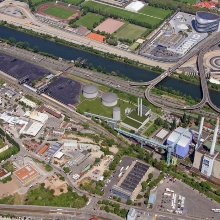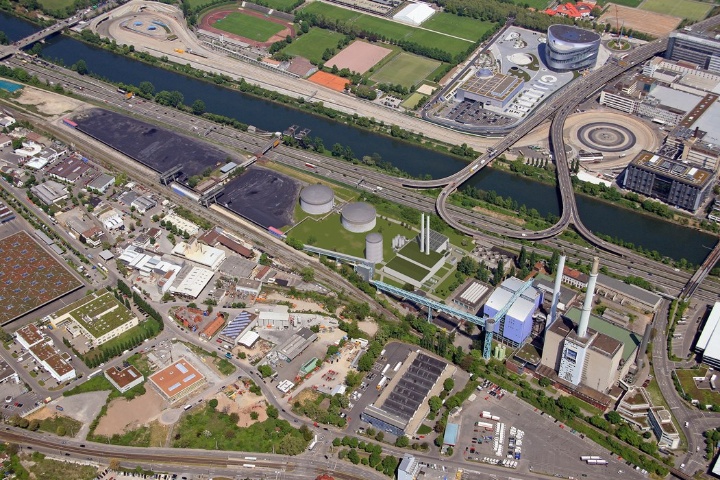As is generally known, Stuttgart lies on the River Neckar; yet in the greater Stuttgart area it is industry, trade and infrastructure that shape the cityscape. How can Stuttgart become a “Riverside City“? An interdisciplinary team from the University of Stuttgart is dedicating itself to this question in the framework of the new BMBF research project WECHSEL (CHANGE).
For cities such as Amsterdam, Cologne, London, Paris or Prague, the rivers that cross them are lively urban lifelines. In such cities the river is a natural part of the historically evolved urban structure, comparable with a large linear park. This is also based on the design of the shore zones: the building developments often run directly along the shorelines, sometimes receding and creating open spaces like parks, promenades or squares, making the river accessible to the public.
In contrast, Stuttgart is indeed situated next to a river, however it is not a riverside city. Two factors are especially responsible for this. On the one hand, the River Neckar flows between the two main urban centres of the greater Stuttgart area, the core area in Stuttgart’s “Kessel” (bowl) and the district of Bad Cannstatt; it only touches the edge of Stuttgart’s city centre. On the other hand, since the end of the 19th Century, the River Neckar has developed into a predominantly industrially used river and plays an important role for the economic prosperity of the region. These industrially, commercially and infrastructurally overstrained “cheeks” of the River Neckar have hardly any urban appeal.
Technical innovations as well as an increased awareness of the qualities of a “Riverside City” and of the significance of an interdisciplinary holistic thought and work strategy are now opening up a twofold opportunity for Stuttgart: in this way on the one hand energy infrastructure facilities in terms of a sustainable energy supply can be further improved and on the other hand the plots of land close to the shores subsequently becoming available can be converted into high-quality urban living spaces.
The basis of the research project forms a realistic estimation of the energy potential on the River Neckar and scenarios derived from this for potential space for the urban and landscape development along the river. The core zone all around the Gaisburg Power Plant, the development zones along the River Neckar in the Stuttgart region and ultimately the network of supply systems within the energy sector and between the energy providers and further grid-bound commodities are being investigated in several stages. Along with the stakeholders, the project also wishes to involve national experts, civil society forces as well as citizens. The research results are to be channelled into the municipal and urban plans, in particular into the master plan “Landscape Park Neckar: Riverside City“.
For Stuttgart “WECHSEL” is a pilot project and is to be a prelude for a long-term, interdisciplinary cooperation between the city, university, business and civil society. Project partners of the University of Stuttgart are the Institut für Energiewirtschaft und Rationelle Energieanwendung (IER) (Institute for Energy Economy and Rational Use of Energy), the Städtebau-Institut (SI) (Institute of Urban Development) as well as the Zentrum für interdisziplinäre Risiko- und Innovationsforschung (ZIRIUS) (Interdisciplinary Centre for Risk and Innovation Research). Other partners are the City of Stuttgart, the Stadtwerke Stuttgart (public utilities), Energie Baden-Württemberg (ENBW) as well as Uhrig Kanalbau GmbH.
Expert Contact:
Ulrich Fahl, University of Stuttgart, Institute for Energy Economy and Rational Use of Energy, Tel. +49 (0)711-68587830 Ulrich Fahl, ,E-Mail



